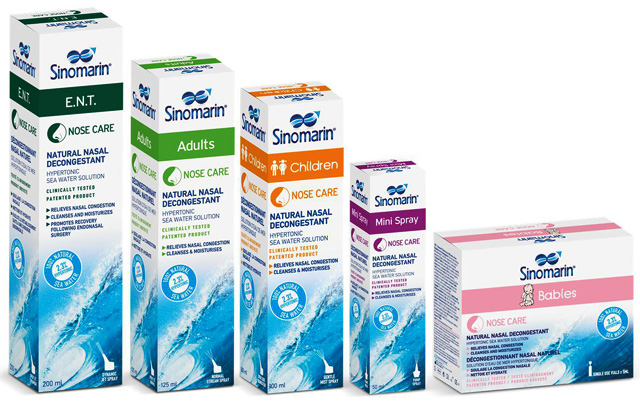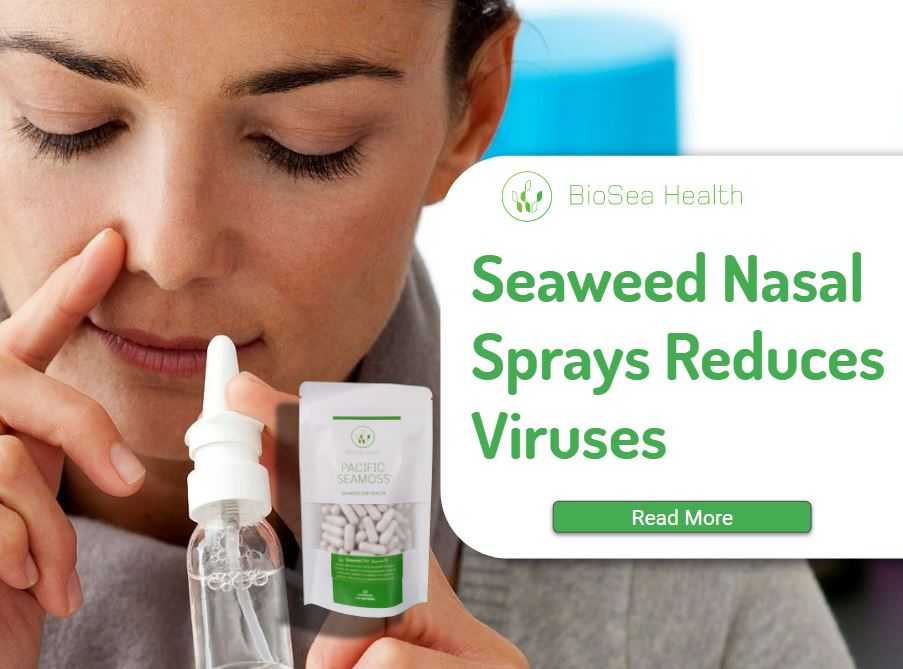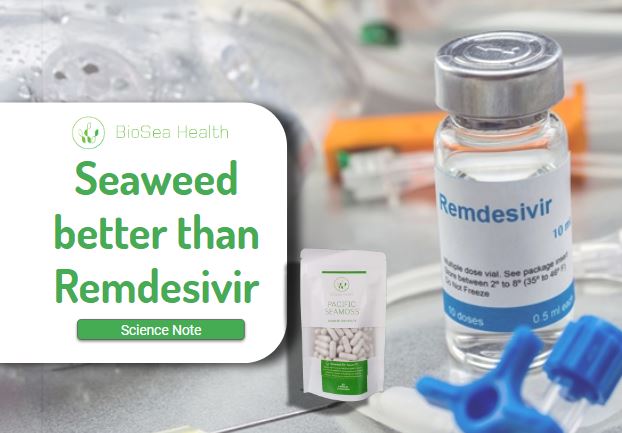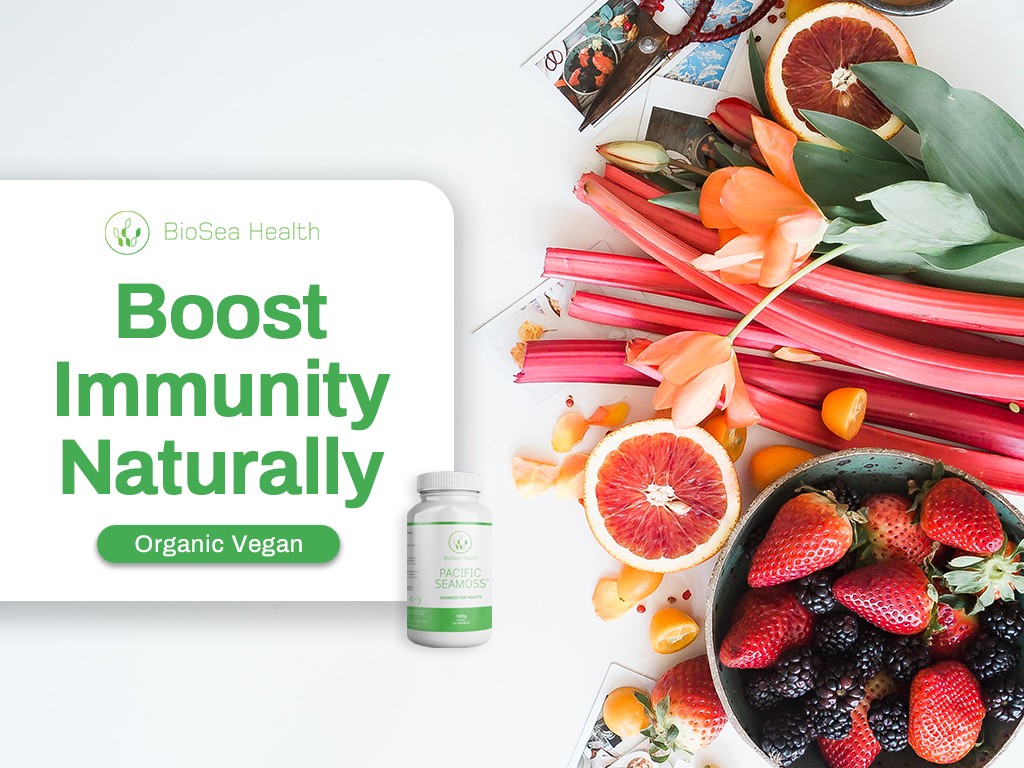The red seaweeds Kappaphycus and Eucheuma have been studied since 1958 for the prevention and treatment of virus infections and the most recent peer-reviewed studies say seaweed is better than remdesivir.
Seaweed is an Untapped Resource
There is an untapped resource in virus prevention and attenuation of symptoms particularly for countries who have an established seaweed industry. Seaweeds are emerging as a potential major player in the fight for the prevention and treatment of the latest disease. New evidence confirms seaweed is better than remdesivir as an effective anti-viral agent.
The idea that seaweed is protective against major pandemic viruses is not new. Back in 1958, seaweed was demonstrated to be effective against Influenza B. More recently seaweed was implicated as an protective factor in the different rates of HIV-AIDS disease burden between Africa and Asia. (Teas et al. 2004) Throughout the years since then, slowly science has been putting together a picture of the impressive anti-viral protection seaweeds could deliver on a population level.
With the ongoing pandemic taking its toll on economic, health and societal norms, countries with an established seaweed industry have a real opportunity to improve not only the health of their people but also the health of their economies.
Seaweed is Antiviral
In 2020 seaweed research is looking specifically at the impact of seaweed on the latest virus. The spike protein on the surface of the virus latches onto the ACE-2 receptor, a molecule on the surface of human cells. Once secured, the virus inserts its own genetic material into the cell, hijacking the cellular machinery to produce replica viruses. But the virus could just as easily be persuaded to lock onto a decoy molecule that offers a similar fit. The neutralized virus would be trapped and eventually degrade naturally. Previous research has shown this decoy technique works in trapping other viruses, including dengue, Zika, and influenza A.
Latest Research Publications
Four publications in 2020 confirm seaweed should be considered as part of a modern program.
1. Extracts from Red Seaweed inhibit Infection
Research from Korea, Song [10] screened 4 marine sulfated polysaccharides for their inhibitory activities against the virus including sea cucumber sulfated polysaccharide (SCSP), fucoidan from brown algae, iota-carrageenan from red algae, and chondroitin sulfate C from shark. The extract of carrageenan from red seaweeds was at concentrations of 3.90~500 μg/mL. (Song et al. 2020)
Such a dose would be achieved with a daily consumption of a few grams of dried Pacific Seamoss.
2. Seaweed Better than Remdesivir
In Kwon’s Nature paper they used a test of antiviral effectiveness against the virus. The data showed that a seaweed carragenan extract substantially outperformed remdesivir which is the current standard antiviral used to combat the disease. This was compared also with another treatments: heparin which is a common blood thinner, and a heparin variant stripped of its anticoagulant properties. These performed on par with remdesivir in inhibiting viral infection in mammalian cells.
The Science Daily Here has a good article on the progress for seaweeds with antiviral properties.
3. Natural Substances are Inhibitors
Thirdly, Gentile et al [11] screened over 14,000 compounds. The virus has a clearly defined protein and protease structure and they reduced the target compounds to down to 17 potential inhibitors. These have been identified among the natural substances of marine origin and believe one or more will be very useful proteases.
4. Commercial Anti-Viral Nasal Sprays Effective
Mariomed – a European based company introduced a nasal spray effective against rhinoviruses in 2014, have recently focused on the latest virus. Morokutti-Kurz et al [13] from Mariomed Biotech AG released a paper that takes iota-carragenan and kappa-carragenan and found the neutralization capacity of iota-carrageenan, was in the same range as a positive serum from a patient.
5. Seaweed Good For Boosting Immunity
Over the years, seaweed has been known to boost immunity. Improved nutrition is important. E.g. Iodine supports thyroid function and is an important organ for repairing damaged cells. Seaweed has 7 times the amount of zinc as oranges, so it only makes sense to use it for preventing sickness. The science says Vitamin C stimulates the production of white blood cells in the body – these are what fight off invaders such as viruses. Our bodies can’t make our own Vitamin C, so it has to be found in our diets or through supplements. That’s where seaweed comes in! With its high Vitamin C levels, it boosts your immune system greatly. There is 25% of your daily requirements in seaweed.
Conclusion
Eating seaweed may be very effective to reduce the activity of the latest virus. It certainly will not do any harm, but from the current literature will do a great deal of good, particularly in countries who do not want the $390 per vial / $2340 cost of treatment with remdesivir when $2 per day of seaweed may be better and more available.
References
[1] J. Teas, J. R. Hebert, J. H. Fitton, and P. V. Zimba, “Algae–a poor man’s HAART?,” Medical Hypotheses, vol. 62, no. 4, pp. 507-510, 2004. (Science Direct)
[2] E. M. Brown et al., “Seaweed and human health,” Nutrition reviews, vol. 72, no. 3, pp. 205-216, 2014.
[3] A. J. Te Velthuis, S. H. van den Worm, A. C. Sims, R. S. Baric, E. J. Snijder, and M. J. van Hemert, “Zn2+ inhibits virus and arterivirus RNA polymerase activity in vitro and zinc ionophores block the replication of these viruses in cell culture,” PLoS pathogens, vol. 6, no. 11, 2010. (PLOS)
[4] K. S. Kumar, K. Ganesan, and P. S. Rao, “Antioxidant potential of solvent extracts of Kappaphycus alvarezii (Doty) Doty–An edible seaweed,” Food chemistry, vol. 107, no. 1, pp. 289-295, 2008.(Link Here)
[5] R. J. Snelgrove, L. Edwards, A. J. Rae, and T. Hussell, “An absence of reactive oxygen species improves the resolution of lung influenza infection,” European journal of immunology, vol. 36, no. 6, pp. 1364-1373, 2006. (PLOS)
[6] Grassauer A, Weinmuellner R, Meier C, Pretsch A, Prieschl-Grassauer E, Unger H. Iota-Carrageenan is a potent inhibitor of rhinovirus infection. Virol J. 2008;5:107. Published 2008 Sep 26. doi:10.1186/1743-422X-5-107 (PubMed)
[7] Koenighofer, M., Lion, T., Bodenteich, A. et al. Carrageenan nasal spray in virus confirmed common cold: individual patient data analysis of two randomized controlled trials. Multidiscip Respir Med 9, 57 (2014). https://doi.org/10.1186/2049-6958-9-57 (SpringerLink)
[8] Khamsi, R 2006 Seaweed compound blocks cervical cancer virus New Scientist
[9] Buck CB, Thompson CD, Roberts JN, Müller M, Lowy DR, et al. (2006) Carrageenan Is a Potent Inhibitor of Papillomavirus Infection. PLOS Pathogens 2(7): e69. https://doi.org/10.1371/journal.ppat.0020069
[10] Song, S, Peng, H, Wang, Q, Liu, Z, Dong, X, Wen, C, Ai, C, Zhang, Y, Wang, Z & Zhu, B-W 2020, Inhibitory activities of marine sulfated polysaccharides. Food & function.
[11] Gentile, D.; Patamia, V.; Scala, A.; Sciortino, M.T.; Piperno, A.; Rescifina, A. A Virtual Screening and Molecular Modeling Study. Mar. Drugs 2020, 18, 225. (Reference)
[12] Kwon, P.S., Oh, H., Kwon, S. Jin W, Zhang F, Fraser K, Hong J Linhardt RJ & Dordicket JS . Sulfated polysaccharides effectively inhibit in vitro. Cell Discov 6, 50 (2020). https://doi.org/10.1038/s41421-020-00192-8 (Nature)
[13] Morokutti-Kurz, M; Graf, P; Grassauer, A; Prieschl-Grassauer E. 2020. SARS-CoV-2 in-vitro neutralization assay reveals inhibition of virus entry by iota-carrageenan. BioRxiv Preprint https://www.biorxiv.org/content/10.1101/2020.07.28.224733v1








